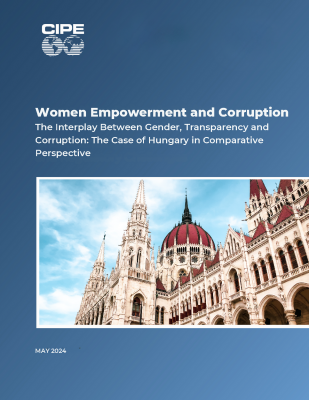 Corruption, defined as the abuse of entrusted power for private gain, is a multifaceted problem with roots both in individual and institutional behavior. In his 2007 paper “Rethinking the Nature and Origins of the Grabbing Hand,” the Swedish Political Science theorist Jan Teorell argued that corruption is primarily an institutional problem, “a conflict between different sectors of society which may benefit or lose from corruption.” He characterized the harm done to victims of corruption as a “regressive tax,” framing it as a distributional conflict between corruption, economic inequality, and democracy.
Corruption, defined as the abuse of entrusted power for private gain, is a multifaceted problem with roots both in individual and institutional behavior. In his 2007 paper “Rethinking the Nature and Origins of the Grabbing Hand,” the Swedish Political Science theorist Jan Teorell argued that corruption is primarily an institutional problem, “a conflict between different sectors of society which may benefit or lose from corruption.” He characterized the harm done to victims of corruption as a “regressive tax,” framing it as a distributional conflict between corruption, economic inequality, and democracy.
Seen from this perspective, the poor and the powerless are more vulnerable to corruption than the wealthy and the influential. When examining corruption through the lens of gender, discrimination makes women disproportionally vulnerable to the corruption of male-dominated societies. The ability of women to overcome this power imbalance is known as empowerment, with its obverse disempowerment further restricting women’s opportunities to succeed or live independently. In extreme cases, there is growing evidence that in some countries, for a woman to survive on her own, she must bribe male extortionists through the currency of sex, a practice referred to as “sextortion.” The problem is not limited to low-income countries; disempowerment can exist at all levels of development. This paper reviews literature detailing the hurdles and opportunities women face in their public life and how they may overcome entrenched norms and values to empower themselves and fight corrupt institutions. The paper uses Hungary as a case study. The country is a middle-income European Union member that nonetheless has fallen below EU standards in public-sector gender empowerment.
In addition to a literature review, the paper uses a mixed method of statistical data analysis, policy trend analysis, and three semi-structured interviews with Hungarian women experts and business association leaders: Réka Sáfrány, the president of the Hungarian NGO Woman’s Lobby, along with a regional chair of a multinational company and a startup founder, both of whom requested anonymity.
Published Date: June 27, 2024
